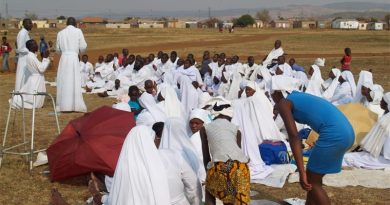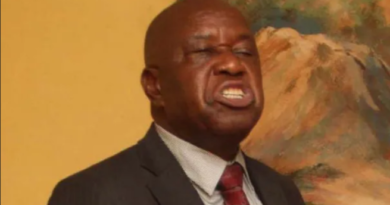Your father killed 20,000 Zimbabweans – Hopewell Chin’ono Fires Back At President Son Over Statement
Hopewell Chin’ono, a prominent journalist from Zimbabwe, recently responded sharply to comments made by Chatunga, the son of former President Robert Mugabe. In his statement, Chin’ono did not hold back in addressing the dark legacy of Mugabe’s rule.
Chin’ono began by reminding Chatunga of the painful history that many Zimbabweans still bear. He stated, “Your father killed 20,000 Zimbabweans,” highlighting the tragic loss of life during Mugabe’s time in power. This figure refers to the estimated number of people who died as a result of violence and repression under Mugabe’s regime, particularly during the Gukurahundi massacres in the 1980s.
The journalist’s comments were not just about numbers; they were a powerful indictment of the suffering caused by Mugabe’s government. Chin’ono pointed out that Mugabe’s leadership led to widespread corruption and mismanagement, which resulted in the country’s economic decline. He remarked on how the looting of state resources has left Zimbabwe in a dire situation, where public infrastructure, including hospitals, has crumbled.
Chin’ono emphasized that without the kleptocratic rule of Mugabe, Zimbabwe would not be in such a desperate need for foreign aid. He suggested that if it weren’t for the corruption and mismanagement of resources during Mugabe’s presidency, the country might have been able to stand on its own without relying on assistance from outside.
In his fiery response, Chin’ono expressed disbelief at Chatunga’s apparent lack of awareness regarding the impact of his father’s actions. He said, “You have no shame peddling cheap jokes when we are talking about the suffering of our people authored by your father!” This statement reflects not only his frustration but also a broader sentiment among many Zimbabweans who feel that the younger generation must confront and acknowledge their country’s painful history rather than trivialize it.
Chin’ono also criticized those who support Chatunga’s comments, implying that they are equally ignorant or perhaps suffering from what he described as Stockholm Syndrome. This term refers to a psychological phenomenon where hostages develop positive feelings toward their captors. By using this analogy, Chin’ono suggested that some people have become so accustomed to oppression that they fail to see it for what it is.
His remarks come at a time when freedom of expression in Zimbabwe is under threat. Journalists like Chin’ono have faced harassment and arrest for speaking out against government corruption and human rights abuses. He has been arrested multiple times on various charges, often seen as politically motivated attempts to silence him for exposing uncomfortable truths about those in power.
Chin’ono’s courage in speaking out is commendable, especially given the risks involved. His work has shed light on critical issues within Zimbabwean society and governance. He has used his platform to advocate for accountability and justice, often at great personal cost.
The exchange between Chin’ono and Chatunga serves as a reminder of the ongoing struggles within Zimbabwe regarding governance, accountability, and human rights. It highlights the need for open dialogue about the past and present challenges facing the nation.
Source : Link




